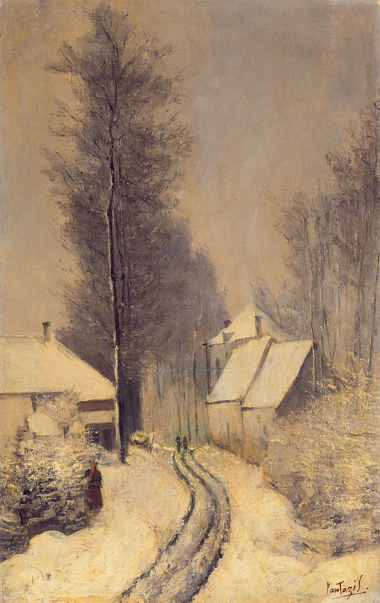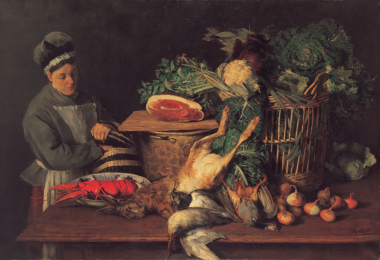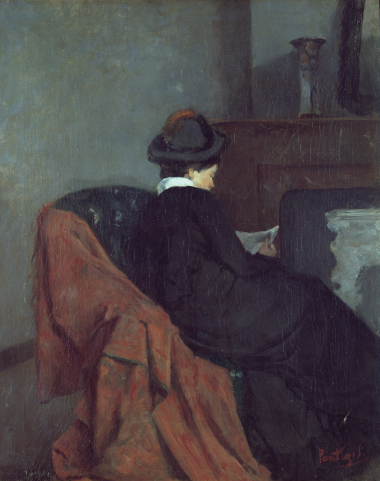The delta of Escau river

Ηe studied at the Athens School of Arts in 1864-1871 as a pupil of Nikephoros Lytras. In 1865 and 1866 he was awarded the third and second prize respectively, in 1868 a monthly scholarship of 25 drs. And for the following three year he received the first prize. After graduating in 1871 he enrolled in the Munich Academy of Fine Arts, which he abandoned very soon to live a few months in Paris. In autumn of the same year he left Paris and moved to Brussels where he remained until his death and where an important open-air movement with autonomous impressionist trends jhad developed.
Periklis Pantazis, an artist with a considerable reputation in Belgium - the country which he recognised as his second homeland - and an enthusiastic member of the avant-garde groups there who were active within the framework of an indigenous Impressionistic movement and of an approach based on social realism, emerged as an important figure in nineteenth-century painting, both in Belgium and Greece. After his brief stay in Paris in 1872, where he made the acquaintance of the work of Corbet, and his contact with artists of the Barbizon School who had adopted open-air painting, in direct contact with nature, he succeeded in condensing in his work the artistic quests of his time, which, passing through Impressionism, led to the appearance of Modernism.
The change in the way of using paint and its technical elaboration with the spatula was not the sole result of Pantazis's time in Paris; it also resulted in the adoption of the subject-matter of his teacher Courbet - still lifes and scenes from everyday life - and of the dark tonicity in the shades of the - usually warm - colours. In the early years after his arrival in Brussels, he very frequently took part in exhibitions involving still lifes, a subject to which he was to bring renewal later, when he attempted to incorporate the human form in these.
He visited Athens only once, at the end of the summer of 1880. Upon his return to Belgium he fell ill with tuberculosis but he continued his activity and became a founding member of the “Group of twenty”
in 1863. The members of this group were free artists and its influence on the evolution of Belgian art was decisive. The first exhibition of the group, in which Pantazis participated took place in February 1864, a few days after his death occurred on January 25.
Pantazis painted portraits, genre scenes, landscapes and still lifes. While still a student he was awarded a silver medal at the Olympia 1870 and 1875. He presented his work in many group exhibitions in different cities in Belgium and Holland, but also in Athens and Paris. His participation at the Paris World Exhibition in 1878 as a member of the Greek representation made him internationally known.

A series of works which Pantazis produced in the environs of Brussels on the banks of the rivers Lesse, Meuse, and Escaut or in the areas around Brussels shows how the artist apprehended the depiction of the landscape in an in situ rendering of a constant 'process' in nature, which manifests itself through the truth of colours, the variation of light, subjection to constant movement, and flux. In the work The Delta of Escau river Escaut, it is the mobile games of the light in the dull sky of the North which penetrates the golden clouds and is reflected in the waters of the river, painting them gold. It is by means of thick bright paint on the clouds or the waters that he attempts to render the flux of the landscape, while the deep green of the trees has become almost brown in the warm tones of the light.







